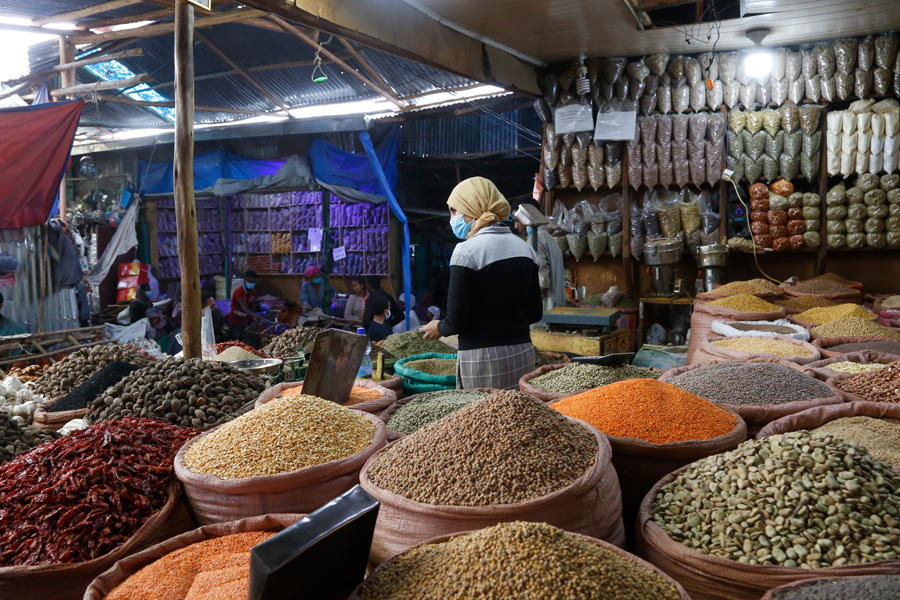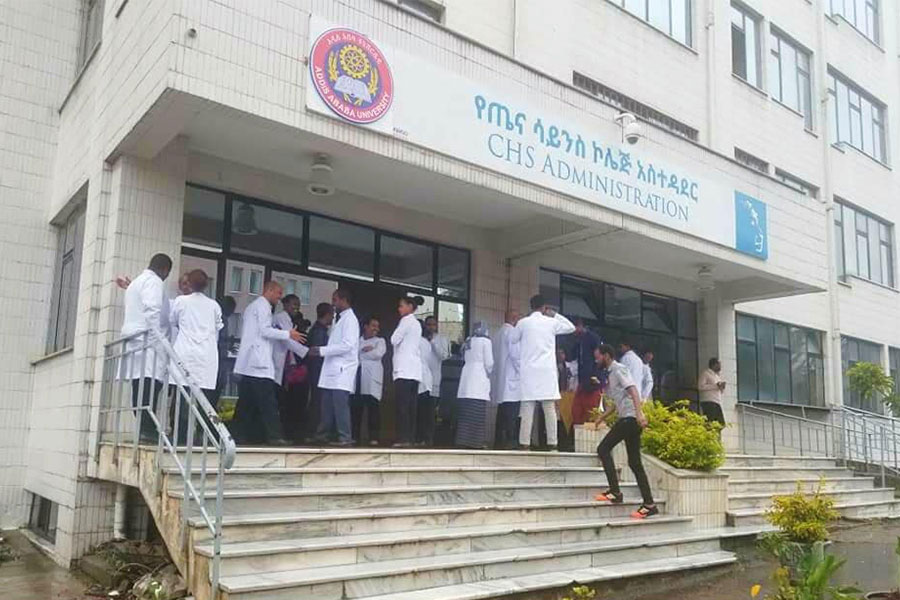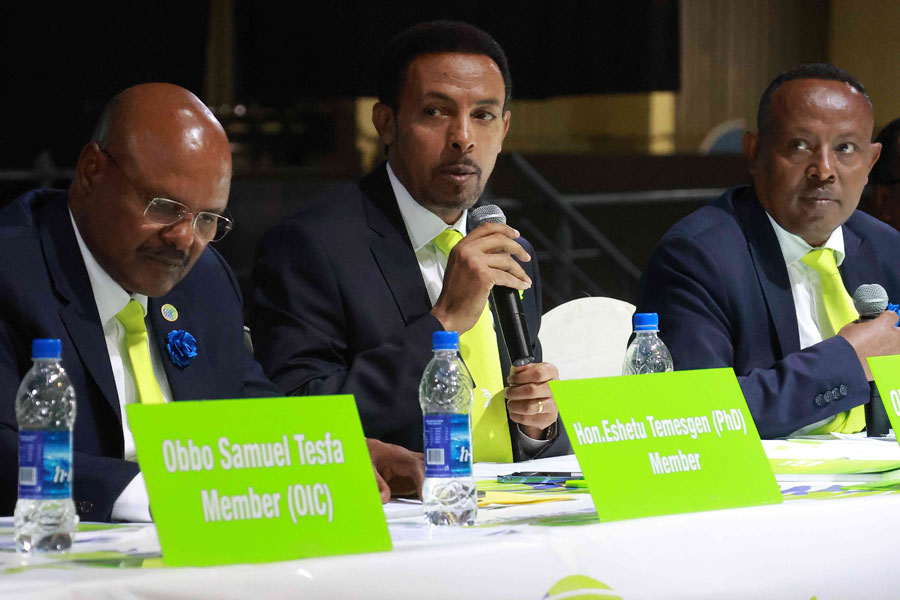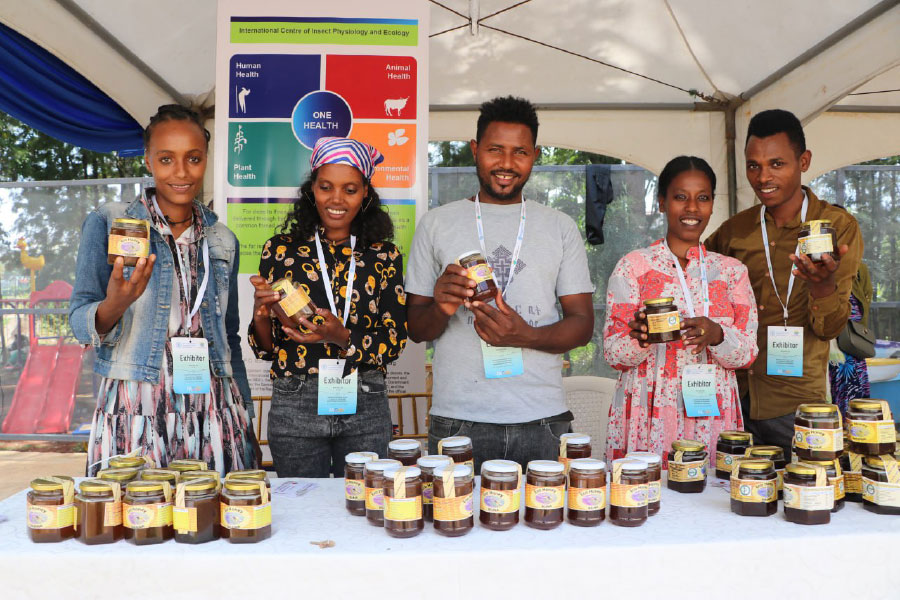
Local cement manufacturers plan to phase out their reliance on imported coal contingent upon the improved quality of locally produced supply. The move comes as a month-long collaborative study with the Ministry of Mines nears completion.
Senior management from the 12 operational cement factories sat down with Habtamu Tegegn, minister of Mines, three weeks ago. A team of experts then, including representatives from industry giants Derba, Dangote, Muger and the Ministry, conducted an assessment of local coal-producing regions. Their focus was on calorie generation, moisture and sulfur composition to identify supply chain gaps and meet the increasing demand of manufacturers. The effort aims to contribute to the national strategy that ensures sustainable and better quality supply locally.
According to Adugna Bekele, president of the Ethiopian Cement Association, an immediate shift from imported coal is impractical. Instead, he advocates for a gradual reduction while concurrently improving the quality of locally produced alternatives.
"Quality will be the deciding factor," said Adugna, pointing to the importance of adopting coal-washing technologies and establishing industrial-scale processors.
While the 16-member strong Association leader recognises low-quality coal as one of the reasons for the underwhelming production of cement, he suggested that several supply chain problems have colluded to undermine the cement supply.
"Poor quality coal damages machinery," he said.
The quest for local coal self-sufficiency gained momentum under the tenure of former Minister Takele Uma, who granted eight large-scale coal mining licenses. However, only MIDROC and Yo Holding remain operational, raising challenges in meeting local demand despite Ethiopia's substantial coal deposits. While Ethiopia has an estimated 600 million tons in coal deposits, the few industrial-scale miners that have existed since exploration began in the 1940s have never met local demand.
State Minister for Mines Million Mathewos stressed the imperative of locally sourcing coal to curb the 300 million dollars spent annually on imports. He acknowledged that the proliferation of small-scale mining has resulted in an oversupply of low-quality coal in the market.
"We have to improve quality," he told Fortune.
The Ministry has taken decisive steps, with Million stating that no more small-scale coal mining licenses will be issued without a corresponding washing facility. The most impacted ones are cement factories which source 90pc of their energy from coal. A ton of cement needs between 200-450Kg, while steel, chemical and textile industries also use it for their energy needs.
For the 40-year-old Mugher Cement, which sources over half of its demand from local small-scale miners, this adds to the challenge. With a 140,000tns of coal demand, the Company can produce up to one million tons of cement annually, commanding a 15pc market share.
Gezahegn Dechassa CEO of Mugher, said significant investment is needed to establish washing plants. At the same time, a considerable effort in alleviating security concerns becomes critical to improve production. He remains optimistic, acknowledging that the transition to self-sufficiency will take time.
"It'll not happen overnight," he told Fortune.
The government is betting on ET Mining S.C., set to begin coal-washing operations in the coming months. With a capacity of processing around 150tns an hour, it is expected to take a third of the market share, playing a vital role in meeting the industry standards.
Wendimu Mitiku, CEO of the Company, recalls initially receiving a 40hct exploration license in the Benshangul Gumuz Regional State and failing to find viable deposits before switching to a washing plant.
"We'll supply coal to the standard of the cement factories," he said.
South Western Mines & Energy Agency has issued 72 licenses for coal exploration, extraction and inspection since the regional state's formation. However, the issuance has been temporarily suspended to enforce better regulatory practices.
The Agency has coal-washing facilities as a requirement for obtaining a mining license following a discussion with Ministry of Mines officials, according to Gebremariam Setegn, director of the Agency. He revealed that the production of coal is a tenth of Ministry projections of 250,000tns despite the proliferation of operators.
"Zones were having difficulty managing license holders," he said. "We can begin exporting under the right circumstances."
For Elias Kassahun, lecturer at the Addis Abeba Science & Technology University, a shift towards large-scale mining promotes responsible resource extraction. Although security concerns play a part, the uncertainty and risks associated with small-scale mining operations created an unfavourable environment for international investment, according to Elias.
PUBLISHED ON
Feb 03,2024 [ VOL
24 , NO
1240]

Agenda | Sep 08,2024

Fortune News | Aug 12,2023

Radar | Sep 22,2024

Commentaries | Jul 17,2022

Fortune News | Jan 12,2019


Fortune News | Sep 18,2022

Delicate Number | Jul 13,2024

Advertorials | Jun 02,2025

Viewpoints | Apr 22,2023

Dec 22 , 2024 . By TIZITA SHEWAFERAW
Charged with transforming colossal state-owned enterprises into modern and competitiv...

Aug 18 , 2024 . By AKSAH ITALO
Although predictable Yonas Zerihun's job in the ride-hailing service is not immune to...

Jul 28 , 2024 . By TIZITA SHEWAFERAW
Unhabitual, perhaps too many, Samuel Gebreyohannes, 38, used to occasionally enjoy a couple of beers at breakfast. However, he recently swit...

Jul 13 , 2024 . By AKSAH ITALO
Investors who rely on tractors, trucks, and field vehicles for commuting, transporting commodities, and f...

Jun 28 , 2025
Meseret Damtie, the assertive auditor general, has never been shy about naming names...

Jun 21 , 2025
A well-worn adage says, “Budget is not destiny, but it is direction.” Examining t...

Jun 14 , 2025
Yet again, the Horn of Africa is bracing for trouble. A region already frayed by wars...

Jun 7 , 2025
Few promises shine brighter in Addis Abeba than the pledge of a roof for every family...